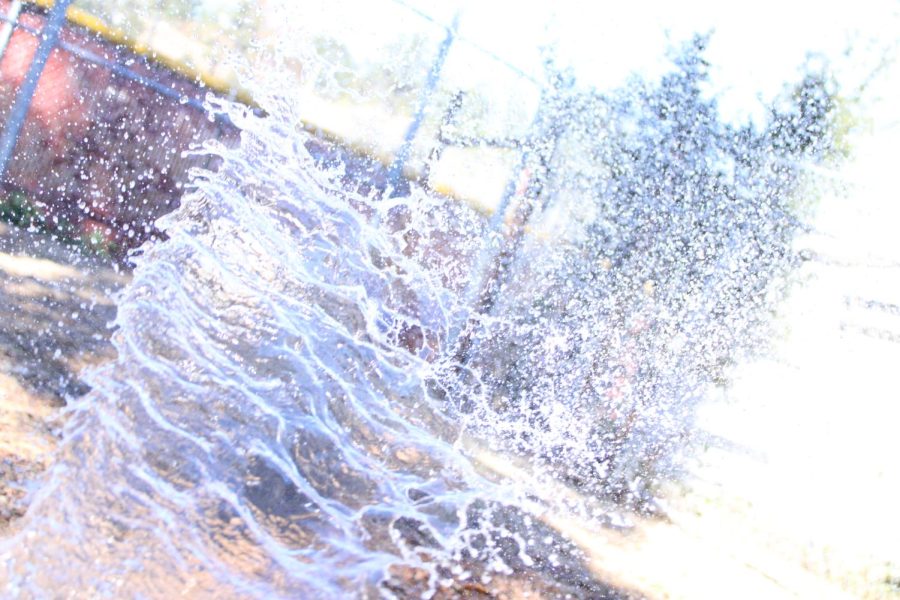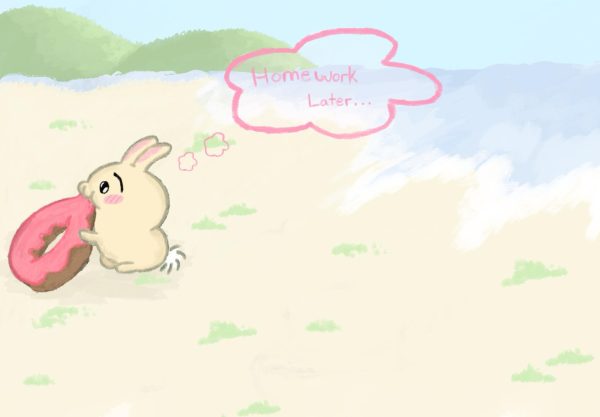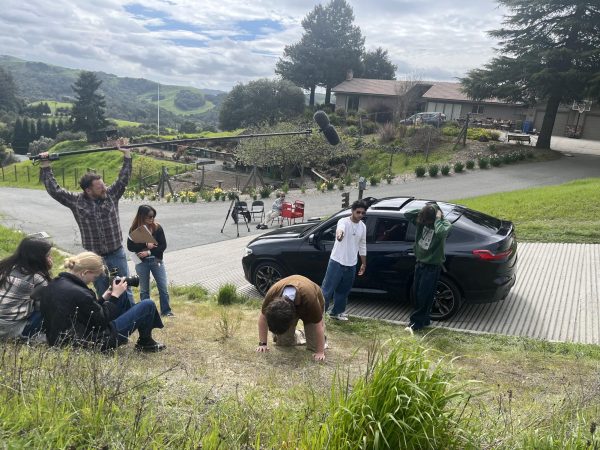Leadership Requests Water Conservation on Campus
Now that California has finally seen some rainfall, it may be difficult to remember the harsh heat waves during summer and the early months of school, and how they affected the campus’s ecosystems. Although we should cherish this currently abundant resource, we shouldn’t be distracted from the ways our lack of preparation during dry months can negatively affect our normally limited water supply; and use this time to prepare for future heat waves.
When walking around the campus of Campolindo, 1 might still notice water spouting from holes in an irrigation tube, or sprinklers going off onto the field or quad. While it is important to water our campus plants weekly to keep them healthy, bright, and colorful, Campo believes we need better ways to regulate the amount of water being used on certain plants and areas. For example, the sprinklers in the quad let out so much water that the grass often floods, leaving large puddles of water in the grass patches. In addition, the rose gardens between the A and C halls, as beautiful as they are, require large amounts of water and often overflow.
Many of the plants at Campo also require more intensive watering as a result of their incompatibility with the California climate. These problems may seem overlooked, but Leadership students seniors Anneliese McKenzie and Mia Jiang along with Administrative Assistant Melissa Haldeman and Assistant Principal Brent Rubey are working to solve this issue.
1st, a solution they propose is putting the sprinklers on at night or later in the day. Without sunlight, less water can evaporate and more will be retained in the soil, lengthening its usage time and lessening the need for plants to be watered as often.
2nd, reduced water usage could be achieved by making the irrigation and sprinkler systems more precise. Redirecting and, in the words of Jiang, “focusing on where it’s really needed instead of just kind of spilling it everywhere,” can save large amounts of water from spouting on random patches of dirt, grass, or concrete. This also includes replacing broken parts of the sprinklers or irrigation tubes that may be causing flooding, and putting tape or other remedies over leaks.
In the courtyard in front of the library and between D and C hall, the grass has a hard time absorbing the water and so it often just runs onto the concrete. This results in huge waste. However, Rubey said Leadership’s plan is to “get all of these sites aerated so the sprinklers target the plants and not the concrete.” He added that, “Whatever water we use on landscaping, grasses, [and] plants [needs to be] absorbed by the plants and the soil.”
Water can be further conserved by finding plants native to the dry, hot climate of Northern California. Doing this would ensure the amount of water used on plants is ethical and controlled. Seeing that California is notorious for its constant droughts, many students and staff believe that it is irresponsible for us to be wasting large amounts of water on non-native plants when we could be using more appropriate amounts of water on plants that are accustomed to less water and dry heat. “Yes, hydrangeas are pretty but they’re not meant to be here,” said McKenzie.
These are all great ideas presented by Campo leadership, however there are a few roadblocks in the way of putting these ideas into action. The 1st would be a lack of communication with the district higher-ups. “The struggle is when you’re continually putting in a work order for the same thing over and over again,” said Haldeman.
Another obstruction is the lack of communication throughout Campo’s own students and staff about this issue. Jiang said, “I just don’t think we’ve taken the time to actually think about how our school could actually be doing better on it.”
Starting to look around and acknowledge the puddles of water laying around is great, but talking about it with peers, teachers, or Haldeman in the main office is what will really help raise awareness on this issue. Haldeman recommends “reporting leaks and reporting any excessive water” to her or Rubey if seen on campus.
Your donation will support the student journalists of Campolindo High School's The Claw. Your contribution will allow us to produce more issues and cover our annual website hosting costs.







